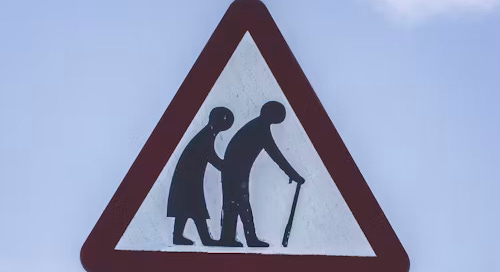It has been five months, now, since we launched The Art 2 Aging and, in that time, we have interviewed over 20 individuals who are what many would call “old” or “seniors”.
We don’t like either of those terms because they’re loaded with too much negative connotation, the result of social thinking about older individuals.
I will say that what we have discovered from our guests is that they regard themselves as anything but “old” even though their dates of birth may hint at that and they are leading lives that appear to be exciting, rewarding, and fulfilling.
But how do they come to create this reality for themselves?
I’ll admit that I find it difficult to accept my own age of 72 but one of our guests, Helen Hirsh Spence, laid it out clearly.
Helen is a leading force in exposing and eradicating ageism. She admitted in our interview that she had to battle her own beliefs around ageism before she could accept herself, her age and her life. It was a freeing, uplifting experience, she says.
I believe she is absolutely correct. When we can look within and realize how much each of us has unconsciously bought into the conditioning that “old is over,” “the best is behind us,” “time to withdraw, sit back and shut up,” the sooner each of us can awaken to what another guest, Wayne Lehrer, rightly refers to as the Third Act.
Wayne is another who went through his own struggles with age. And, like Helen, he needed to purge himself of all the dross about being older.
Again, I can identify with Wayne, who, by the way, is a yoga instructor and coaches meditation as well as being an artist, sculptor, and the author of two books, the second of which will soon be published.
In the introduction to his second book, The Art of Conscious Aging, Wayne writes, “The basic premise is that as we age, we change. As we change, we need to acquire and develop new tools, skills, attitudes and motivation to transform our Third Act into the next step in our personal journey toward authentic happiness, a sense of inner peace, and the spiritually uplifting experience of Self-Actualization.”
That first sentence says it all: we change as we age. It’s this fact that those of us who struggle with our age need to accept before we can take “the next step in our personal journey toward authentic happiness” as Wayne so eloquently puts it.
I know I struggle with it from a physical point of view. I resent the aching in my lower back despite all the yoga stretching I do; I look at my body in the mirror and shake my head in disappointment at the belly I now have; I chide myself for not being able to instantly recall a word during conversation (and being a guy who has made his profession from words, this really rankles me); I feel frustration at walking into a room to retrieve something and immediately forgetting what it was I wanted.
Taken individually, these are small concerns but, together, they offer up the opportunity to make a mountain out of a molehill. And I have discovered that I make plenty of mountains.
So, when Helen Hirsh Spence mentions her discovery of ageism within, I get it completely.
The key, as it was for Helen, is to root out those limiting beliefs and replace them with empowering ones that will allow us to take the next step – or the first step, perhaps – on our journey toward authentic happiness, as Wayne Lehrer writes.
At the core, though, there has to be a certainty that we - and by extension our lives - have worth. Of course we do; each of us is born worthy, I believe, but that sense of worth can be overlaid and eventually buried under many years of accepting without question the views that others like our parents, our teachers in school and even our friends and life partners have about us.
The good news is that by shining a light on them, we can absorb them and effectively “disappear” them. This, then, lays bare the table upon which we can set new empowering beliefs and ideas about ourselves.
It’s that simple. Is it easy? Well, as the saying goes, if it were that easy, everyone would do it. The fact of that matter is, though, everyone CAN do it. It just takes being honest with ourselves and, perhaps even more valuable, being kind to ourselves as we do so.
My partner, Dave Grein, and I look forward to giving our subscribers conversations with many more empowered, strong, and motivating guests in the weeks ahead.
If you think this project is worthwhile, then please consider becoming a paid subscriber to help us continue to bring such content to you each week!





